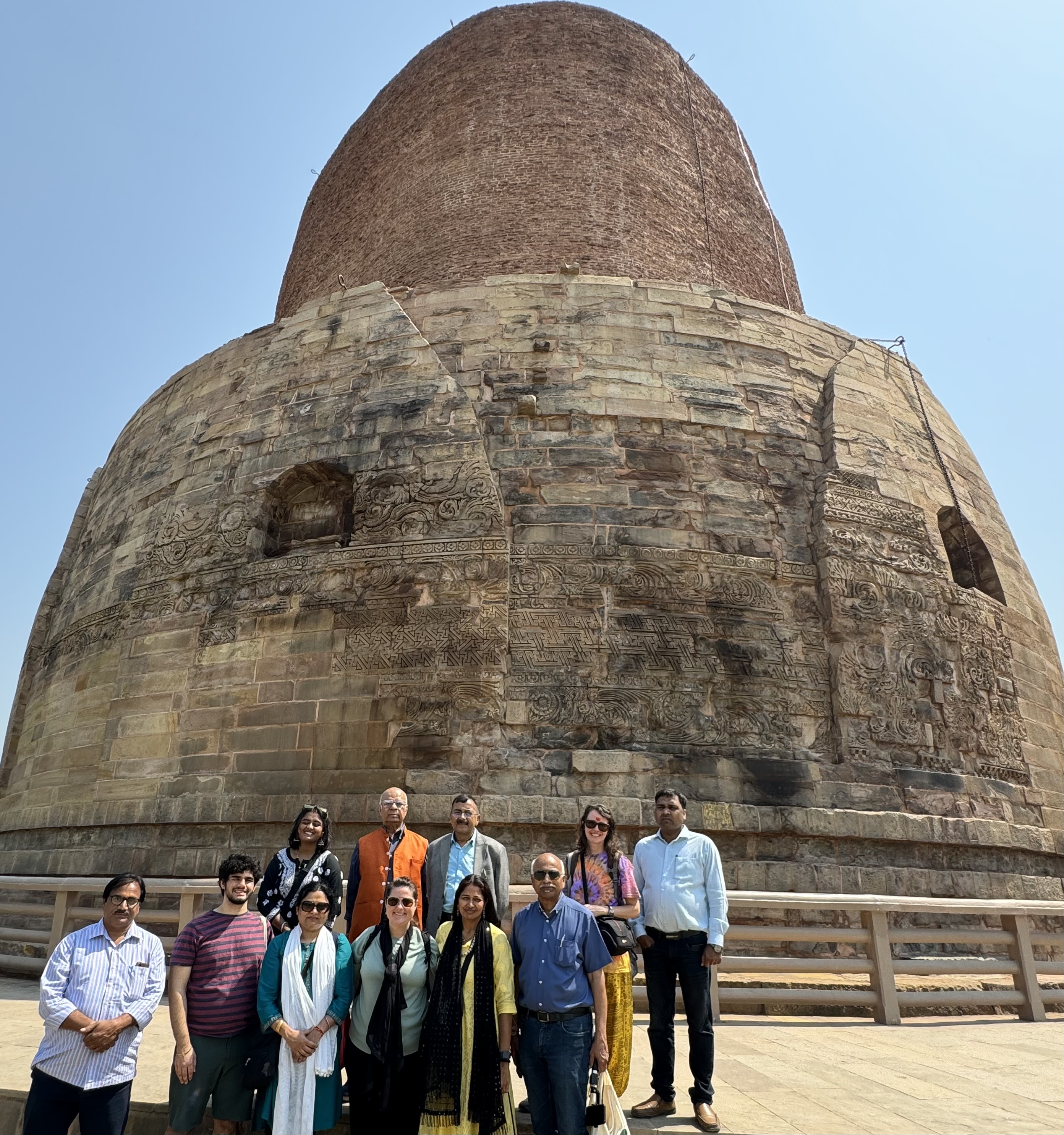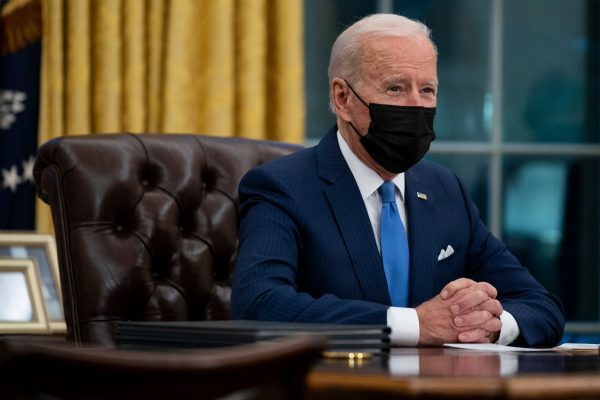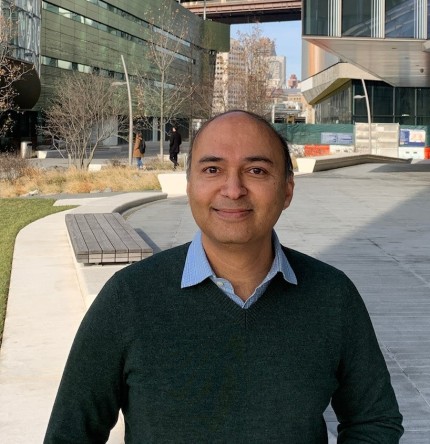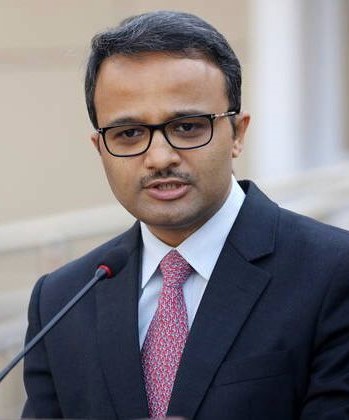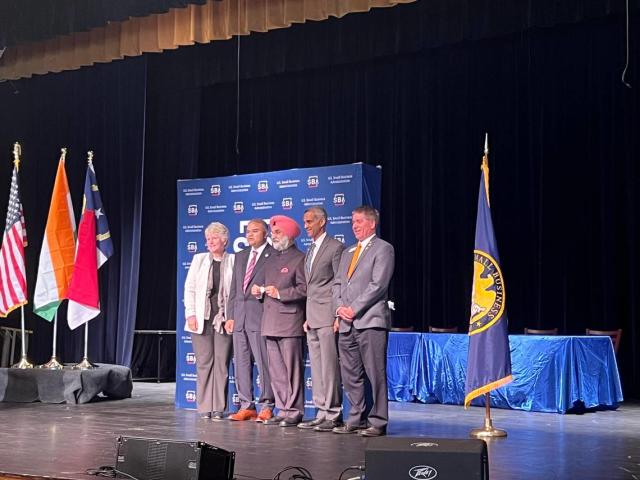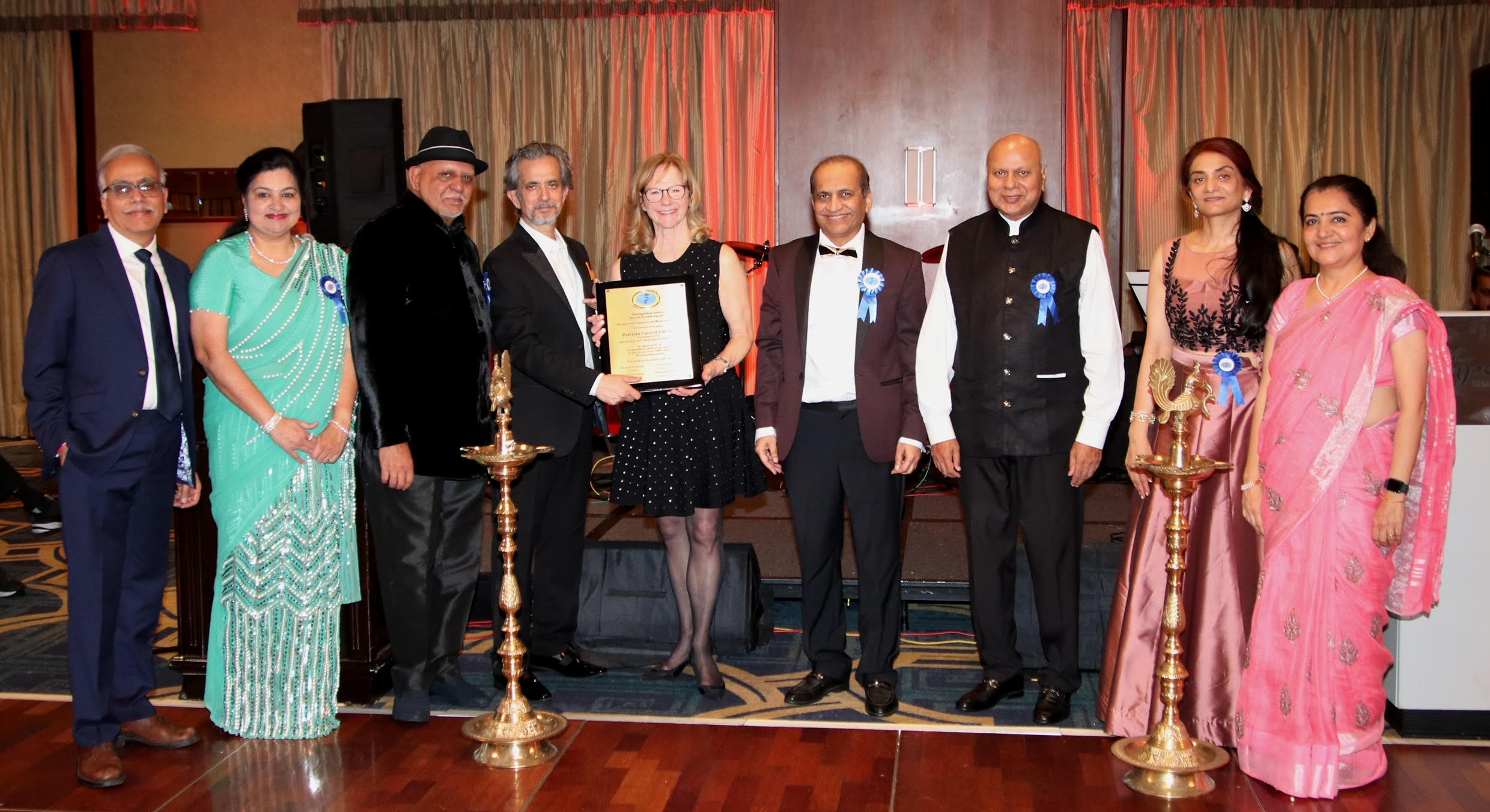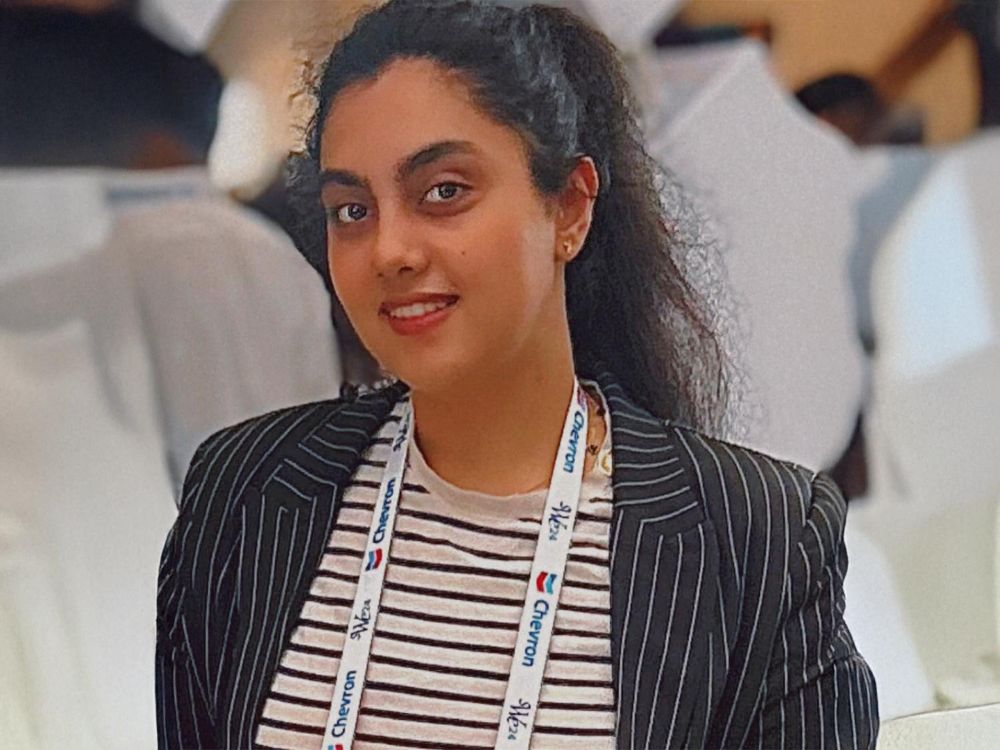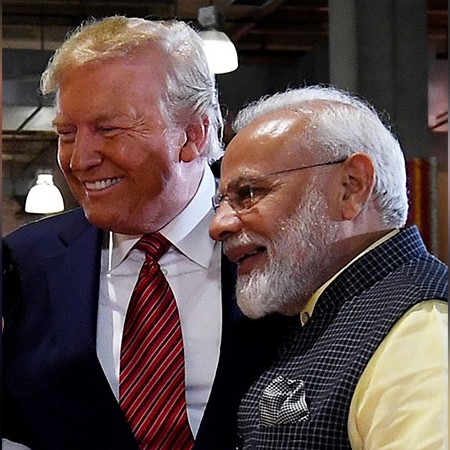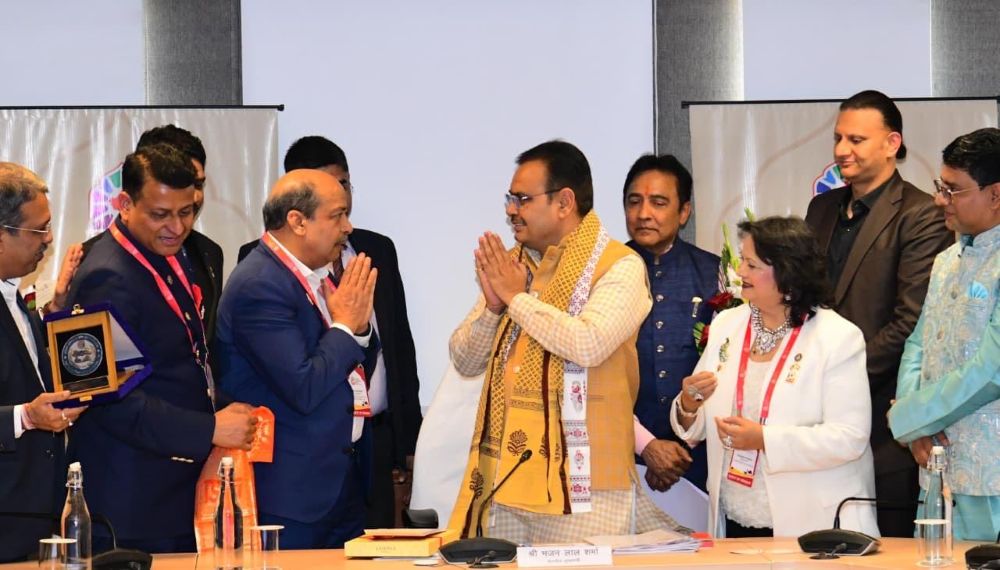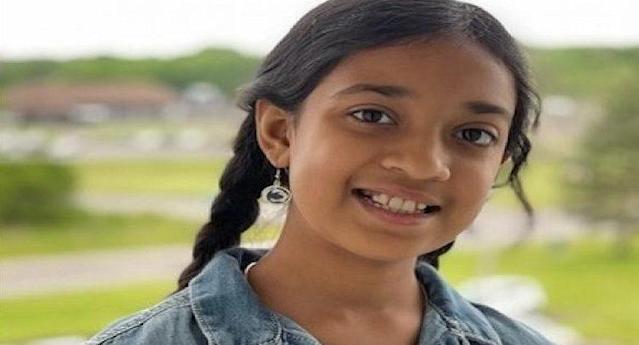To Explore the Narrative of Diversity Performed through Storytelling and Encoded in Historical Architectural Sites in India
Our Bureau
Edison, NJ
For the third consecutive time Yuva Hindi Sansthan, a NJ based not-for-profit educational organization, in partnership with New York University, has received the Fulbright-Hays GPA award. The architects of the project are Ashok Ojha, an Edison based journalist and teacher and Professor Gabriela Nik Ilieva, a senior professor of Hindi at New York University. Professor Gabriela serves as the academic director of the program while Ashok Ojha is the program director, 2024 YHS-NYU Fulbright-Hays GPA Project and President of Yuva Hindi Sansthan. The theme of the project is, “Narrative of Diversity Performed through Storytelling and Encoded in Historical Architectural Sites in India.” Under this program a dozen US based language instructors and college students will travel to India on a Study tour in the Spring 2025.
Yuva Hindi Sansthan and New York University Hindi language program partnership developed this proposal. Previously the US Department of Education International Foreign Language Education wing granted this award to the partnership of Yuva Hindi Sansthan and New York University Hindi program in 2022 and 2023, also.
The project focuses on improving language and cultural proficiency of US based instructors and students. It will be completed in three phases. The orientation is the first phase while the study tour takes place in the second phase after which participants will develop topic based teaching materials for K-12 learners in the third phase of the program. In the second phase, study tour will take place in Spring 2025. The participants will visit the architectural structures in Ajanta-Ellora, Sanchi, Delhi, Khajuraho, and Varanasi-Sarnath where they will explore folk figurative and performing arts, (e.g. dastangoi, puppetry, qawwali, jatra, pandavani, phad or kaawad) through hands-on workshops and demonstrations. On their return to the USA, they will develop thematic teaching material based on their experiences in India.
A host of Hindi Language and Area Studies academic experts from partnering institutions in the USA and India will guide and advise program participants. Besides the close collaboration with NYU, partnering institutions in the USA are University of Texas-Austin (UTA), McMillan Center, Yale University, and Michigan State University (MSU). In India: RN Tagore University, Bhopal, Banaras Hindu University, Vasant College for Women, Varanasi, Indira Gandhi Center for the Arts, Delhi.
Full time employed K-12 educators, college and university students and faculty members are eligible to apply and can visit its website.
Expert academicians led by Professor Gabriela Nik Ilieva, NYU, will teach participants of the program. That will guide participants how to decode the images on ancient structures. Part of the program theme is inspired by ‘Worldly Gurus and Spiritual Kings’ a research project by the New Jersey based Art historian Professor Tamara Sears of Rutgers University, New Jersey, who will also lecture during the first phase of the program.
In 2022 a month-long tour to India with focus on marginalized communities and their traditional holistic interrelation with nature was organized. It was part of our first Fulbright-Hays project.
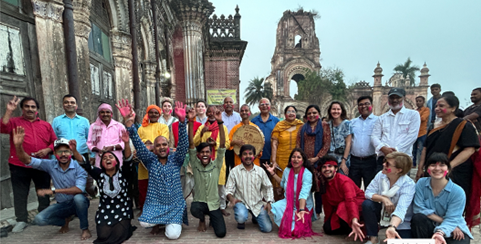
The second YHS-NYU Fulbright-Hays project (2023) was based upon the tradition of ‘contentment’ in the Indian society. The West, especially the U.S. has embraced yoga and meditation practices which have also originated in India. Although the Indian philosophical traditions about mindful living and their practical implications leading to well-being are recognized and valued globally, both in the Western and the Eastern world, they are not consistently studied and explored throughout the Hindi curricula. The concepts of mindfulness and wellness have gradually emerged as dominant lifestyle constructs which are believed to have derived from Indian philosophical traditions and practices, more specifically Buddhist, Jain and Upanishadic thought, rituals and practices. The purpose of the 2023 study tour was to provide opportunities for participants to engage in collecting authentic, cultural products, and relics. The participants engaged themselves in critically examining environmental and related sociocultural issues and observed and learned the culture of various communities.
It was launched in Rishikesh where the group camped at ‘Arsh Vidya Gurukulum’, an Ashram established by late Swami Dayananda Saraswati for promoting Vedanta and Sanskrit learning. The second destination was Lucknow, the capital city of Uttar Pradesh, where Lucknow University hosted the group. The Vice Chancellor of Lucknow University, Alok Kumar, briefed about the ‘Happy Thinking Lab’, set up in the Psychology department of the university. The third destination was Varanasi and its twin city Sarnath, the place known as the site of Buddha’s first sermon after he got enlightenment in Bodh Gaya. Some of the faculty members at Banaras Hindu University delivered lectures for participants who experienced the juxtaposition of ancient ways and modernity as they went on a boat trip over the Ganga River. They witnessed the expression of faith as people bathed in the holy water and walked to temples for a ‘Darshan’ of Lord Shiva.
The connection with nature constitutes life values that support wellbeing more than any medicine. No wonder Indians worship the river Ganga as their mother. The group went to Sarnath where they witnessed the Ashoka pillar, the national emblem of India, safely preserved in the museum of Sarnath. Next morning they visited the Central Institute of Higher Tibetan Studies, established at the behest of the Dalai Lama after he made India his home. Here they listened to Buddhist monks and learned the true sense of mindfulness and wellness as defined in the Tibetan traditions.
During a weeklong stay in Kolkata, the group explored several socio-cultural factors which helped unpack mindful living. The participants explored the literary traditions of the Nobel Laureate Rabindra Nath Tagore at Thakur Bari, the birthplace of Rabindranath Tagore and learned Tagore’s ideas of global vs. national harmony while interacting with the Hindi speaking migrant workers, the legendary hand rickshaw pullers and taxi drivers.
The final destination of 2023 program study tour was Madhubani, Bihar, where participants experienced art as an expression of the understanding of the laws of the universe and human life. The township of Madhubani is also home to half a dozen women artistes who have been honored with India’s greatest civilian award, the Padma awards, for their artistic expressions in paintings. Here the artistic expressions by women were displayed through artistic paintings with vivid colors. From the walls of Madhubani Railway Station to people’s homes, paintings are integral part of the lives of people. Art made a daily ritual for local people. The art is an expression of local understanding of how the universe was created and exists in balance and harmony. Examining these paintings and discussing their topics with the local artists shed light on their understanding of wellness and mindfulness.
The participants of previous programs documented their experience and shared it at various fora. The same process will continue but focus will be on a new theme.
















